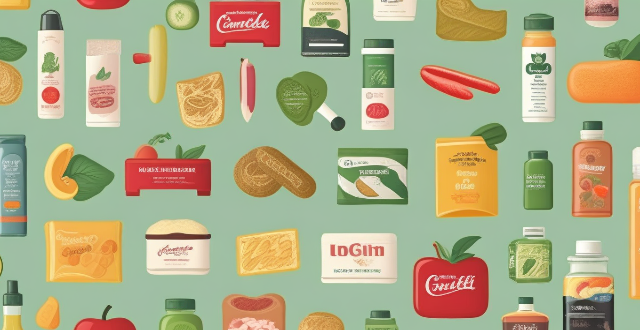Imported foods are subject to various safety standards and regulations to ensure they are safe for consumption. These standards cover production, processing, packaging, labeling, transportation, and storage. Good Manufacturing Practices (GMP), Hazard Analysis and Critical Control Points (HACCP), and quality assurance programs are used in production and processing. Food packaging must be made from safe materials and protect the food from contamination, while food labels must provide accurate information about the product. Proper temperature control and sanitary transportation practices are essential for perishable foods. Import regulations and certifications vary by country but are crucial for ensuring the safety of imported foods. Adherence to these standards is important for protecting public health and ensuring high-quality, safe food products.

Safety Standards for Imported Foods
Imported foods are subject to various safety standards and regulations to ensure that they are safe for consumption. These standards cover everything from production and processing to packaging, labeling, and transportation. Here is a detailed overview of the safety standards for imported foods:
Production and Processing
Good Manufacturing Practices (GMP)
- GMP guidelines ensure that food is consistently produced and controlled according to quality standards.
- They cover aspects like sanitation, equipment maintenance, employee training, and proper handling of ingredients.
Hazard Analysis and Critical Control Points (HACCP)
- HACCP systems identify specific hazards and control points in the production process.
- They help prevent biological, chemical, and physical contamination of food products.
Quality Assurance Programs
- Quality assurance programs monitor and verify compliance with established quality standards.
- They may include regular product testing and auditing of manufacturing facilities.
Packaging and Labeling
Food Packaging Regulations
- Food packaging must be made from materials that do not react with or contaminate the food.
- It should also protect the food from external contamination during storage and transportation.
Food Labeling Standards
- Food labels must provide accurate information about the product's contents, nutritional value, and allergens.
- They should also include expiration dates, country of origin, and contact details for the manufacturer or distributor.
Transportation and Storage
Cold Chain Management
- Perishable foods require proper temperature control during transportation and storage.
- This helps prevent bacterial growth and spoilage, ensuring the food remains fresh and safe to eat.
Sanitary Transportation Practices
- Transport vehicles must be regularly cleaned and maintained to prevent cross-contamination.
- Drivers and handlers should follow strict hygiene protocols when loading and unloading food products.
Import Regulations and Certifications
Country-Specific Import Regulations
- Different countries have their own set of import regulations that must be followed.
- These regulations often cover issues like pesticide residues, heavy metals, and microbial limits.
International Certifications and Standards
- Many international certifications, such as ISO 22000 or Global Food Safety Initiative (GFSI), can help streamline the import process.
- These certifications demonstrate compliance with widely accepted food safety management systems.
Import Licenses and Permits
- Depending on the type of food being imported, certain licenses or permits may be required.
- These documents prove that the importer has met specific requirements for importing the food into their country.
In conclusion, the safety standards for imported foods encompass a wide range of factors, from how the food is produced and packaged to how it is transported and stored. Adherence to these standards is crucial to protect public health and ensure that consumers receive high-quality, safe food products.